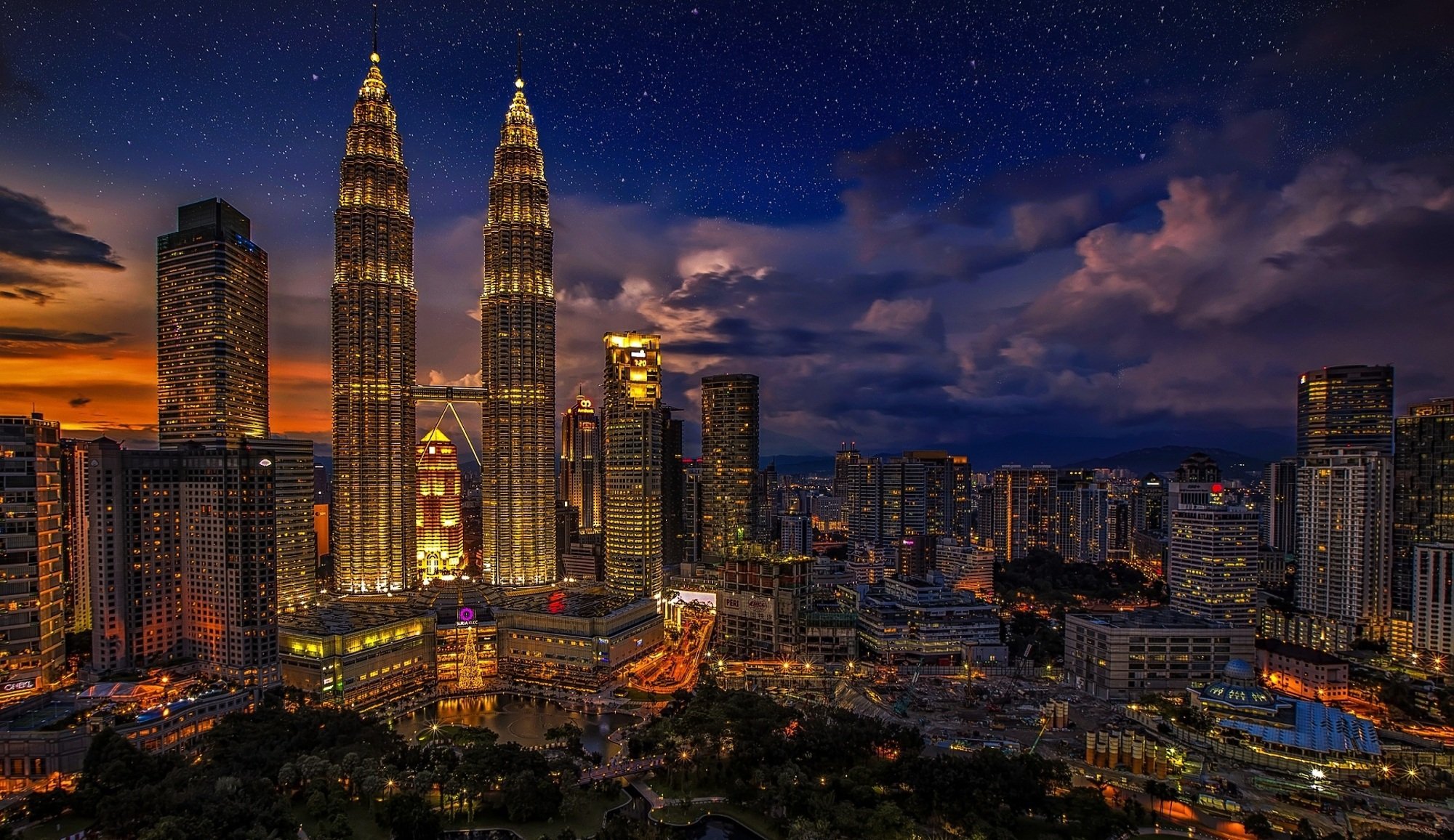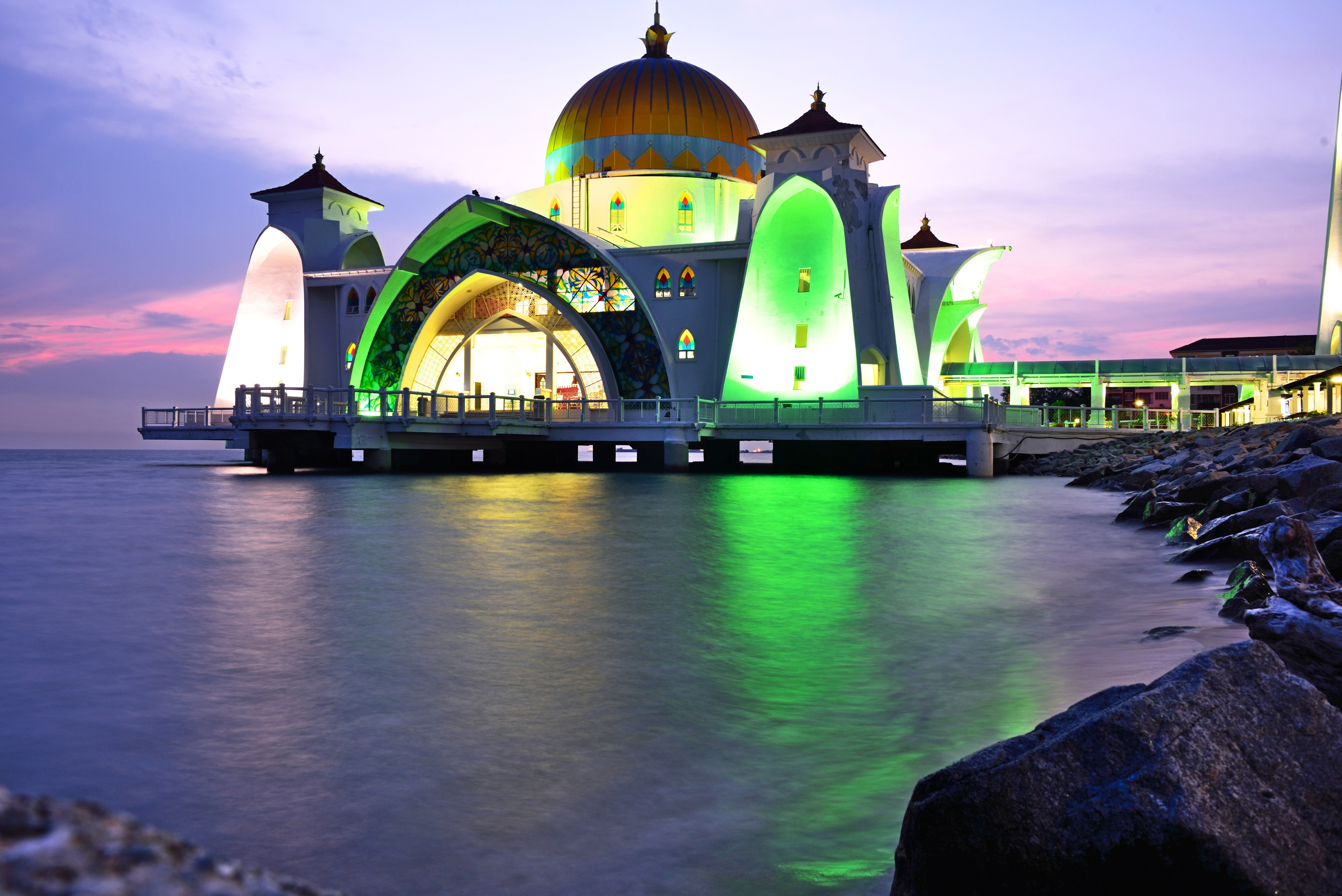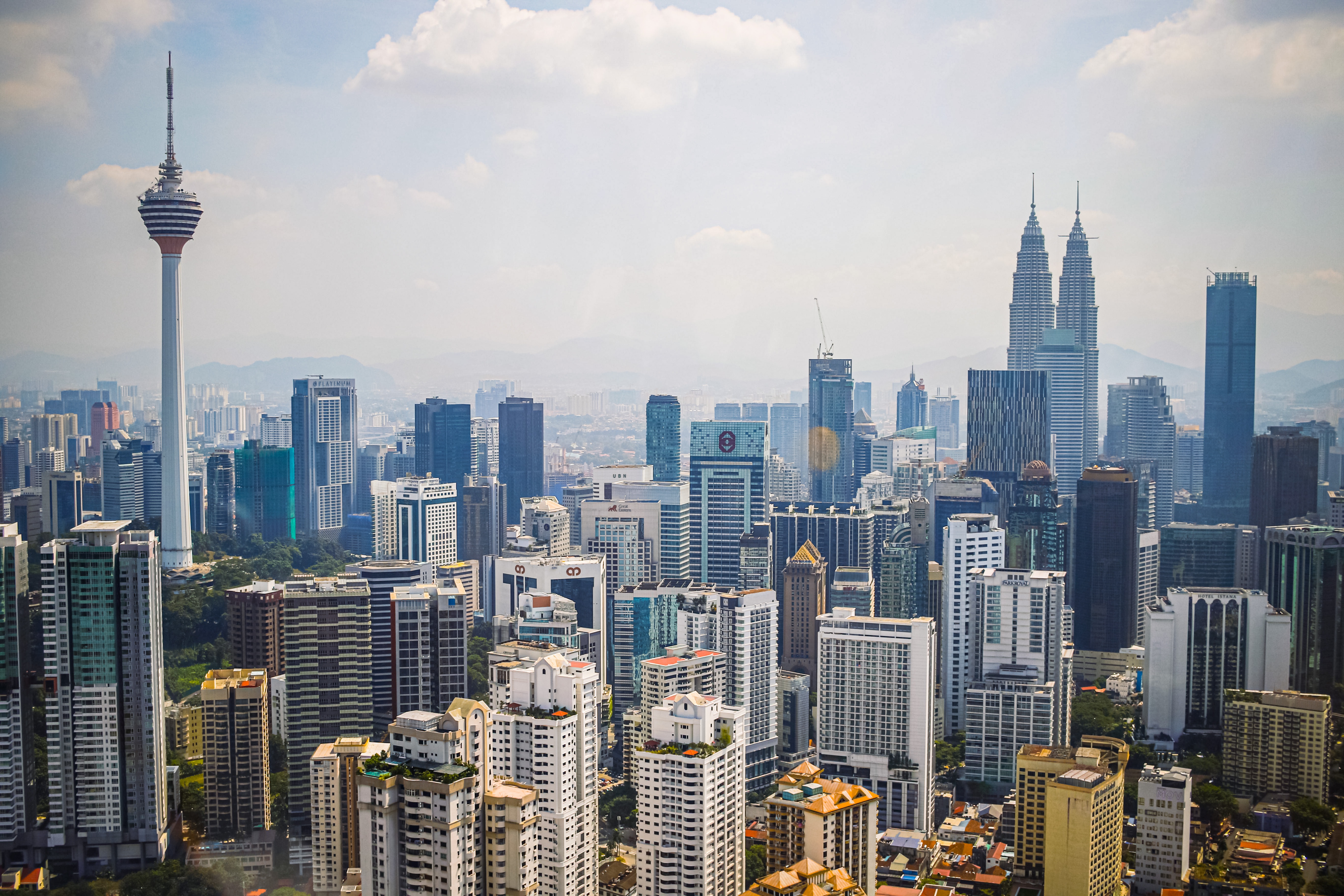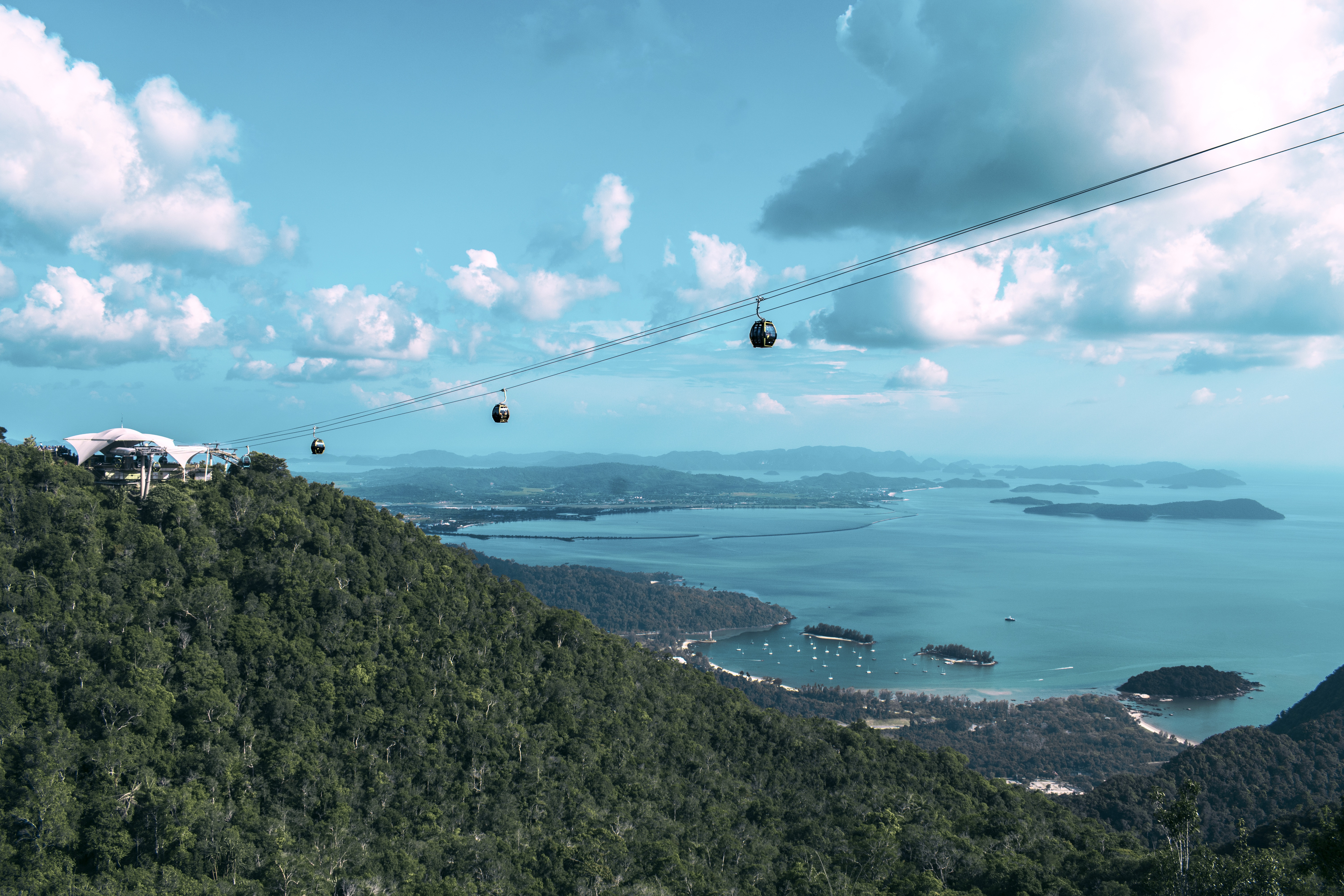Expat Health and Safety in Malaysia

Expat, Digital Nomad and Traveler Health and Safety in Malaysia: General and Medical Information.
Malaysia, a country located in Southeast Asia, lies just north of the equator and is made up of two areas separated by sea: Peninsular Malaysia (Semenanjung Malaysia), also referred to as West Malaysia (Malaysia Barat) and East Malaysia (Malaysia Timur) located on island of Borneo of which the reminder belongs to Indonesia. Kuala Lumpur, which is the Malaysian capital, is in the western/middle part of peninsular Malaysia and is about 40 km from the coast towards Melaka straits. Putrajaya is the administrative center and where the government is located lies about 25 km to the south of the capital.
Malaysia is a member of the Commonwealth and formed out of territories formerly part of British Malaysia. Malaysia was established on September 16, 1963, it comprised of the territories of Malaya (now Peninsular Malaysia), and the colonies of Sarawak and Sabah in northern Borneo. Singapore was initially part of Malaysia and in August 1965 Singapore seceded from the federation and became an independent republic.
Both Semenanjung (Peninsular) and Timur (east) Malaysia lies in the same tropical latitudes and are affected by similar airstreams. Both have high temperatures and humidities, heavy rainfall, and a climatic year patterned around the northeast and southwest monsoons. The four seasons of the climatic year are the northeast monsoon (from November or December until March), the first intermonsoonal period (March to April or May), the southwest monsoon (May or June to September or early October), and the second intermonsoonal period (October to November). The onset and retreat of the two monsoons are not sharply defined.
Malaysia is a multi-ethnic, multicultural, and multilingual society. The culture of the area originates from indigenous tribes that populated it, along with the Malays who later moved there. Substantial influence comes from Chinese and Indian culture, dating back to when foreign trade began. Other cultural influences include but are not excluded to the Persian, Arabic, and British cultures. Due to the structure of the government, coupled with the social contract theory, there has been minimal cultural assimilation of ethnic minorities.
History of Malaysia
Malaysia has a rich and diverse history, with evidence of human habitation dating back over 40,000 years. The earliest known inhabitants of the region were the Orang Asli, a group of indigenous people who still live in parts of Malaysia today.
In the 7th and 8th centuries, Malaysia was a part of the powerful Buddhist Srivijaya Empire, which controlled much of the trade in Southeast Asia. In the 13th and 14th centuries, the region came under the influence of the Hindu Majapahit Empire, and Islam began to spread throughout the region.
In the 15th century, the Malacca Sultanate was established, and the region became an important center of trade and commerce. The Portuguese, Dutch, and British all had a presence in Malaysia, and the country was colonized by the British in the late 19th century.
After World War II, Malaysia became a British colony, and in 1957 it gained independence as a federation of states. Today, Malaysia is a diverse and vibrant country, with a mix of different cultures and influences from its long history.

Tourism in Malaysia and importance of appropriate travel insurance
Malaysia is a popular tourist destination, with a range of beautiful and interesting places to visit. Some of the main tourist sites in Malaysia include:
- Petronas Twin Towers: The Petronas Twin Towers are the tallest twin towers in the world, and they are an iconic symbol of Malaysia. The towers are located in the capital city of Kuala Lumpur, and they offer stunning views of the city from their observation decks.
- Kinabalu National Park: Kinabalu National Park is a UNESCO World Heritage Site, and it is home to Mount Kinabalu, the highest peak in Southeast Asia. The park is known for its incredible biodiversity, and it is a popular destination for hiking and nature lovers.
- Penang: Penang is an island state located off the west coast of Malaysia, and it is known for its beautiful beaches, delicious food, and rich cultural heritage. The capital city of Georgetown is a UNESCO World Heritage Site, and it is home to a range of historic buildings and landmarks.
It's important to buy travel insurance when visiting Malaysia or any other destination, as it can provide protection in case of unexpected events, such as trip cancellations, medical emergencies, or lost luggage. By having travel insurance, you can enjoy your trip with peace of mind, knowing that you are protected in case of any unforeseen circumstances.
Buy travel insurance now
Business climate in Malaysia
Doing business in Malaysia can be a rewarding experience, as the country has a strong economy and a favorable business environment. Malaysia is a major hub for trade and commerce in Southeast Asia, and it is a member of the Association of Southeast Asian Nations (ASEAN), which promotes economic cooperation among its member countries.
If you are considering doing business in Malaysia, you can expect to encounter a mix of modern and traditional elements. The country has a developed infrastructure, with modern cities and transportation networks, but it also has a rich cultural heritage, with a mix of different ethnic groups and influences.
Doing business in Malaysia can be challenging at times, as the country has a complex regulatory environment, and it can be difficult for foreign businesses to navigate. Additionally, the country's economy is heavily reliant on exports, and global economic conditions can have a significant impact on business in Malaysia.
Overall, doing business in Malaysia can be a rewarding experience, but it is important to do your research and plan ahead to ensure a successful venture.
Expatriate life in Malaysia
Expatriate life in Malaysia can be an enjoyable and rewarding experience, as the country is known for its warm and friendly people, rich culture, and beautiful natural scenery. Malaysia has a mix of modern and traditional elements, and it offers a range of activities and amenities that are appealing to expats.
One of the main pastime pleasures for expats in Malaysia is exploring the country's rich cultural heritage. Malaysia is home to a mix of different ethnic groups, and each group has its own unique traditions and customs. Expats can learn about Malaysia's cultural diversity by visiting cultural centers, attending festivals and events, or exploring the country's many museums and galleries.
Another popular pastime for expats in Malaysia is enjoying the country's natural beauty. Malaysia is home to a range of stunning landscapes, from the beaches of Penang to the rainforests of Borneo. Expats can enjoy outdoor activities, such as hiking, camping, and snorkeling, or simply relax and enjoy the beauty of the country's natural environment.
Overall, expatriate life in Malaysia can be an exciting and fulfilling experience, with a wide range of activities and opportunities for exploration and enjoyment.

Digital nomads in Malaysia
It is possible to work as a digital nomad in Malaysia. Digital nomads are individuals who work remotely, often using technology to connect with clients and colleagues from anywhere in the world. Malaysia is a popular destination for digital nomads, due to its relatively low cost of living, good infrastructure, and strong connectivity.
If you are planning to work as a digital nomad in Malaysia, you will need to obtain a work visa. The process for obtaining a work visa in Malaysia can be complex, so it's important to research the requirements and to plan ahead. Once you have a work visa, you will be able to work and live in Malaysia for a specified period of time.
Working as a digital nomad in Malaysia can be an enjoyable and rewarding experience, but it's important to be prepared and to plan ahead. By doing your research and taking the necessary steps, you can have a successful and fulfilling experience as a digital nomad in Malaysia.
Quote and buy medical insurance nowSafety for foreigners in Malaysia
Malaysia is generally considered to be a safe country for foreigners, but there are some potential risks and concerns that visitors and residents should be aware of. One of the main concerns is petty crime, such as pickpocketing and theft, which is more common in crowded areas. It's important to be cautious and to keep an eye on your belongings in these areas.
Another potential concern is traffic accidents, as Malaysia has a high rate of accidents on the roads. It's important to exercise caution when driving or riding in a vehicle, and to be aware of your surroundings at all times. Additionally, it's worth noting that there are some areas of the country that are off-limits to foreigners, such as military bases and certain border regions. It's important to check local advice and to avoid these areas to ensure your safety.
Overall, by staying informed and being cautious, you can have a safe and enjoyable trip to Malaysia.
The healthcare system in Malaysia
Malaysia has designed a well-organized and comprehensive two-tier healthcare system. The first being a universal healthcare system and private medical care system living and thronging alongside the universal one; The universal system provides subsidized healthcare through its vast system of public clinics and hospitals. The MOH (Ministry of Health) is the key provider of medical services to the local nationals while private healthcare caters to the vast population of foreign workers and expatriates. Malaysia's healthcare system is ranked in the top in Asia to being among the most developed in Asia it contributes to the countries very successful medical tourism industry.
Malaysia spent just below 4 % of its GDP on medical care in 2019. In 2020, Malaysia’s overall life expectancy at birth was 76 years and being 74 for males and 78 for females. The mortality rate for infants was 7 deaths per 1000 births. Malaysia’s fertility rate in 2020 was 2.0 which is marginally below the replacement level of 2.1. In 2020, Malaysia’s crude death rate was 5 per 1000 people and crude birth rate was 16 per 1000 people.
In 2021, Malaysia’s principal cause of death among grownups was coronary artery disease and of the medically certified deaths in 2020 it represented 17 % of all deaths. Second on the list is pneumonia which stood for 11 % of all adult deaths. Road accidents has been identified as a challenging health hazard in Malaysia. Considering its population Malaysia has the unfortunate placing as being one of the countries in the world with the highest traffic fatality rates. Many Malaysians smoke and thus making also smoking a major concern for health in the country.
Standard of hospitals and medical care in Malaysia
The standard of hospitals and medical care in Malaysia varies, but overall the country has a good healthcare system. Malaysia has a mix of public and private hospitals, and the quality of care can vary depending on the specific facility. Many of the larger cities, such as Kuala Lumpur and Penang, have modern hospitals with advanced medical technology and experienced doctors and nurses.
In general, the public hospitals in Malaysia are less expensive than the private hospitals, but they may have longer wait times and may not offer the same level of service as the private facilities. The private hospitals in Malaysia are generally more expensive, but they often offer a higher standard of care, with shorter wait times and more personalized service.
Overall, the standard of hospitals and medical care in Malaysia is good, but it's important to research the specific facilities and to choose a hospital that meets your needs and budget. Additionally, it's worth noting that some medical procedures and treatments may not be available in Malaysia, so it may be necessary to seek medical care outside of the country in some cases.
Request QuoteCommon health issues in Malaysia
Malaysia has a range of common health issues, and the most prevalent health concerns vary depending on the specific region of the country. Some of the common health issues in Malaysia include:
Respiratory infections: Respiratory infections, such as pneumonia and influenza, are common in Malaysia, particularly during the rainy season. These infections can be serious, particularly for older adults and people with compromised immune systems.
Malaria: Malaria is a mosquito-borne disease that is prevalent in some parts of Malaysia, particularly in rural and forested areas. Symptoms of malaria include fever, chills, and body aches, and the disease can be serious if left untreated.
Heart disease: Heart disease is a leading cause of death in Malaysia, and it is often linked to risk factors such as poor diet, lack of exercise, and high blood pressure. Heart disease can be prevented by making lifestyle changes, such as eating a healthy diet and exercising regularly.
Diabetes: Diabetes is another common health issue in Malaysia, and it is often linked to lifestyle factors, such as poor diet and lack of exercise. Diabetes can cause a range of health problems, including heart disease, nerve damage, and kidney disease.
Overall, the most common health issues in Malaysia vary depending on the specific region of the country, but respiratory infections, malaria, heart disease, and diabetes are among the most prevalent health concerns.
Common accidents and dangers in Malaysia
The most common accidents and dangers in Malaysia vary depending on the specific region of the country and the activities that a person is engaging in. Some of the most common accidents and dangers in Malaysia include:
- Traffic accidents: Traffic accidents are a common cause of injury and death in Malaysia, particularly on the country's roads. Drivers in Malaysia often have a reputation for being reckless and aggressive, and the roads can be dangerous, particularly in rural areas.
- Drowning: Drowning is another common accident in Malaysia, particularly among tourists who are not familiar with the country's beaches and water conditions. Strong currents and unpredictable weather can make swimming dangerous, and it's important to exercise caution and to heed local advice when swimming in the ocean.
Overall, the most common accidents and dangers in Malaysia vary depending on the specific location and activities, but traffic accidents, drowning, food poisoning, and natural disasters are among the most prevalent risks.
International private medical insurance in Malaysia
International Private Medical Insurance is relatively affordable in Malaysia as you can select to exclude more expensive regions and countries such as Hong Kong, Singapore, China or select your area of coverage to be South East Asia only with, potentially, accident and emergency coverage outside of these regions. Most insurance companies limits this coverage so you may need to buy an international annual travel or single trip policy and a good option can be found here.
A wide range of international private medical insurance companies provides coverage for digital nomads, expatriates, and professionals resident in Malaysia or who plan to relocate here. While medical care in Malaysia ranks very high in Asia and cost of private medical care is relatively low it is important to protect yourself against the potentially high cost of medical care should you suffer a car accident, a stroke or just dengue fever (quite common).
Medical inflation in Malaysia runs at a relatively high pace with around 12 % for 2021 but it should be noted that this comes on top of relatively low costs in comparison with neighboring Singapore. Expatriate Group provides a brilliant direct billing solution for their group clients with a digital wallet that can be loaded with the expected cost of care so you can settle your medical bill directly with the hospital or clinic – say goodbye submitting claims! Expatriate group also offers affordable plans that protects you for the potentially high costs should you suffer from cancer or hearth failure. You can see more about the coverage their 3 different plans offer here and you can obtain quotes and take out coverage here:
Quote and buy medical insurance nowGroup insurance for international companies and organizations in Malaysia
Group insurance for international companies and organizations in Malaysia that focuses on heart conditions and cancer care can provide employees with access to quality medical care and support in case of a serious illness. Group insurance plans typically include coverage for medical expenses, such as hospital stays, surgeries, and medications, as well as support services, such as access to cancer support groups and counseling.
Group insurance plans for international companies and organizations in Malaysia that focus on heart conditions and cancer care typically have a range of options and benefits, and employers can choose a plan that best meets the needs of their employees. Some of the key features and benefits of group insurance plans for heart conditions and cancer care in Malaysia include:
Coverage for heart conditions: Group insurance plans typically include coverage for heart conditions, such as heart attacks, coronary artery disease, and heart surgery. This can help employees to access the medical care and support they need in case of a heart-related emergency.
Coverage for cancer care: Group insurance plans also typically include coverage for cancer care, such as chemotherapy, radiation therapy, and other treatments. This can provide employees with access to the medical care they need to fight cancer and improve their chances of recovery.
Support services: In addition to coverage for medical expenses, group insurance plans often include support services, such as access to cancer support groups and counseling. This can help employees to cope with the emotional and psychological impact of a serious illness, and to get the support they need during a difficult time.
Overall, group insurance for international companies and organizations in Malaysia that focuses on heart conditions and cancer care can provide employees with the medical care and support they need in case of a serious illness.
Group HealthInternational schools in Malaysia and health insurance for the teachers
International schools in Malaysia often provide health insurance for their teachers, and these plans typically include coverage for a range of medical expenses and support services. Health insurance for teachers in Malaysia can provide important benefits, including coverage for diabetes and wellness.
Some of the key benefits of health insurance for teachers in Malaysia include:
- Coverage for diabetes: Health insurance plans for teachers in Malaysia often include coverage for diabetes, which is a common health concern in the country. Coverage can include medications, blood sugar monitoring, and other treatments to help manage the condition.
- Coverage for wellness: Many health insurance plans for teachers in Malaysia also include coverage for wellness, such as gym memberships, healthy eating programs, and other activities that promote overall health and wellbeing.
- Support services: Health insurance plans for teachers in Malaysia often include support services, such as access to mental health counseling and stress management programs. This can help teachers to maintain their mental and emotional wellbeing, and to cope with the challenges of working in a demanding environment.
Overall, health insurance for teachers in Malaysia can provide important benefits for diabetes and wellness, and it can help teachers to maintain their health and wellbeing while working in the country.
Group HealthForeign Embassies and medical insurance for its staff in Malaysia.
Foreign embassies and their staff in Malaysia often have medical insurance plans that provide coverage for a range of medical expenses and support services. These plans typically include coverage for medical care in Kuala Lumpur and Putra Jaya, which are the main cities in Malaysia.
Medical insurance plans for foreign embassy staff in Malaysia typically include coverage for a range of medical expenses, including hospital stays, surgeries, and medications. The plans also often include support services, such as access to mental health counseling and emergency medical evacuation.
Some of the key benefits of medical insurance for foreign embassy staff in Malaysia include:
- Coverage for medical care in Kuala Lumpur and Putra Jaya: Medical insurance plans for embassy staff in Malaysia typically include coverage for medical care in the main cities of Kuala Lumpur and Putra Jaya. This can provide peace of mind for embassy staff, knowing that they have access to quality medical care if needed.
- Support services: Many medical insurance plans for embassy staff in Malaysia also include support services, such as access to mental health counseling and emergency medical evacuation. This can help embassy staff to cope with the challenges of working in a foreign country, and to get the support they need in case of an emergency.
Overall, medical insurance for foreign embassy staff in Malaysia can provide important benefits, including coverage for medical care in the main cities of Kuala Lumpur and Putra Jaya, as well as support services to help embassy staff cope with the challenges of working in a foreign country.
Group Health